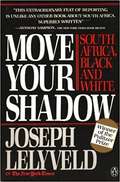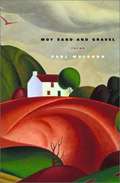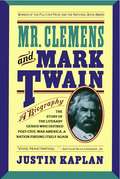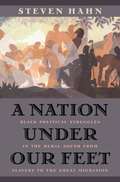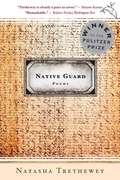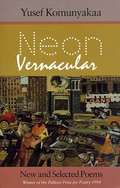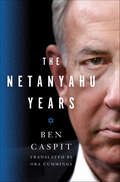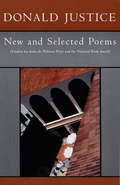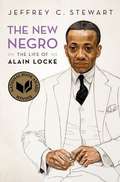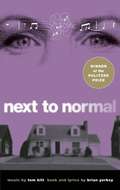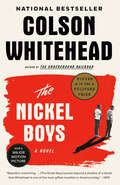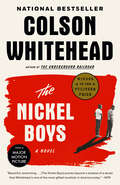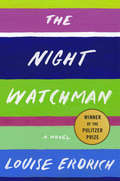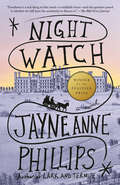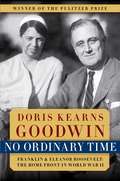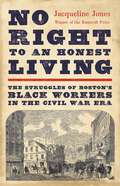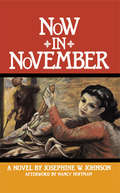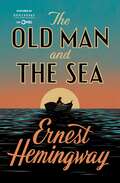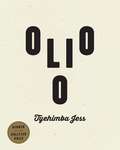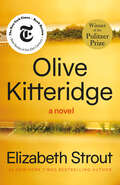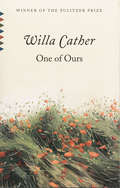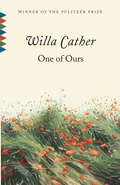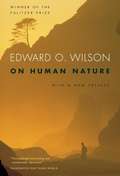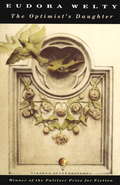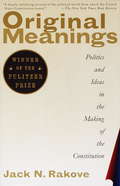Special Collections
Pulitzer Prize Award Winners
Description: Bookshare is pleased to offer the following titles, winners of the Pulitzer Prize Award. Note: Some drama winners are available and are listed under Fiction awards. #award
- Table View
- List View
Move Your Shadow
by Joseph LelyveldThe complexities of South Africa are illuminated upon in this acclaimed work that takes a close, clear look at the strange realities within that country.
Pulitzer Prize Winner
Moy Sand and Gravel
by Paul MuldoonPaul Muldoon's ninth collection of poems, his first since 1998, finds him working a rich vein that extends from the rivery, apple-heavy County Armagh of the 1950s, in which he was brought up, to suburban New Jersey, on the banks of a canal dug by Irish navvies, where he now lives. Grounded, glistening, as gritty as they are graceful, these poems seem capable of taking in almost anything, and anybody, be it a Tuareg glimpsed on the Irish border, Bessie Smith, Marilyn Monroe, Queen Elizabeth I, a hunted hare, William Tell, William Butler Yeats, Sitting Bull, Ted Hughes, an otter, a fox, Mr. and Mrs. Stanley Joscelyne, an unearthed pit pony, a loaf of bread, an outhouse, a killdeer, Oscar Wilde, or a flock of redknots. At the heart of the book is an elegy for a miscarried child, and that elegiac tone predominates, particularly in the elegant remaking of Yeats's "A Prayer for My Daughter" with which the book concludes, where a welter of traffic signs and slogans, along with the spirits of admen, hardware storekeepers, flimflammers, fixers, and other forebears, are borne along by a hurricane-swollen canal, and private grief coincides with some of the gravest matter of our age.
Pulitzer Prize for Poetry 2003.
Mr. Clemens and Mark Twain
by Justin KaplanMark Twain, the American comic genius who portrayed, named, and in part exemplified America's "Gilded Age," comes alive -- a presence felt, an artist understood -- in Justin Kaplan's extraordinary biography.
With brilliant immediacy, Mr. Clemens and Mark Twain brings to life a towering literary figure whose dual persona symbolized the emerging American conflict between down-to-earth morality and freewheeling ambition. As Mark Twain, he was the Mississippi riverboat pilot, the satirist with a fiery hatred of pretension, and the author of such classics as Tom Sawyer and Huckleberry Finn. As Mr. Clemens, he was the star who married an heiress, built a palatial estate, threw away fortunes on harebrained financial schemes, and lived the extravagant life that Mark Twain despised. Kaplan effectively portrays the triumphant-tragic man whose achievements and failures, laughter and anger, reflect a crucial generation in our past as well as his own dark, divided, and remarkably contemporary spirit.
The book begins as the thirty-one-year-old Mark Twain, carrying bottled within himself the experience of his boyhood in Hannibal and his coming-of-age on the Mississippi and on Nevada's silver-rush frontier, quits San Francisco and the old elemental America of the open spaces. He is heading east for the burgeoning new urban America of commerce, invention, finance, and status, where he is destined to marry well, hobnob with the rich and influential, throw away fortunes on tragically alluring schemes...and produce literary works that fulfill and go beyond the vocation he has already acknowledged: "to excite the laughter of God's creatures." He is heard, seen, made palpable. The texture of his marriage with Olivia Langdon, the protean presence of Mark Twain on the lecture platform, his friendships and enmities -- virtually all his closest relationships partook of both -- spring to life. His writing and publishing experience is organically re-created. His endurance in the face of personal tragedy, his unrivaled charm, his compulsion to quarrel, his humility and his vanity are evoked and felt. His wit rings through the book. "Honest poverty is a gem that even a King might be proud to call his own, but I wish to sell out. I have sported that kind of jewelry long enough." Thus the young Mark Twain, on the eve of world fame, spoke his disgust at a money-centered society in that blatantly philistine voice that he chose for his most savage satirical declarations. But all his life -- racked by his own ambivalences -- he was to embrace the values of that society. Mr. Clemens and Mark Twain brilliantly conveys this towering literary figure who was himself a symbol of the peculiarly American conflict between moral scrutiny and the drive to succeed. Mr. Clemens lived the Gilded Life that Mark Twain despised. The merging and fragmenting of these and other identities, as the biography unfolds, results in a magnificent projection of the whole man; the great comic spirit; and the exuberant, tragic human being, who, his friend William Dean Howells said, was "sole, incomparable, the Lincoln of our literature."
Winner of the National Book Award
Pulitzer Prize Winner
A Nation under Our Feet
by Steven HahnThis is the epic story of how African-Americans, in the six decades after their release from slavery, transformed themselves into a political people- an embryonic black nation.
Pulitzer Prize Winner
Native Guard
by Natasha TretheweyWinner of the 2007 Pulitzer Prize for poetry, Natasha Trethewey's elegiac Native Guard is a deeply personal volume that brings together two legacies of the Deep South.The title of the collection refers to the Mississippi Native Guards, a black regiment whose role in the Civil War has been largely overlooked by history. As a child in Gulfport, Mississippi, in the 1960s, Trethewey could gaze across the water to the fort on Ship Island where Confederate captives once were guarded by black soldiers serving the Union cause. The racial legacy of the South touched Trethewey's life on a much more immediate level, too. Many of the poems in Native Guard pay loving tribute to her mother, whose marriage to a white man was illegal in her native Mississippi in the 1960s. Years after her mother's tragic death, Trethewey reclaims her memory, just as she reclaims the voices of the black soldiers whose service has been all but forgotten.Included in this beautiful new edition of Native Guard is an audio CD of the poems read by the author -- a lovely gift for anyone who loves poetry that speaks to the heart and mind.
Neon Vernacular
by Yusef KomunyakaaABOUT THE AUTHOR: Yusef Komunyakaa is a professor in the Council of Humanities and Creative Writing at Princeton University. He is the author of five Wesleyan titles including the Pulitzer-winning Neon Vernacular (1993), which also won the Kingsley-Tufts Poetry Award from the Claremont Graduate School, Thieves of Paradise (1998), Magic City (1992), and Dien Cai Dau (1988). In 1991 he won the Thomas Forcade Award, in 1993 he was nominated for the Los Angeles Times Book Prize in Poetry, and in 1997 he was awarded the Hanes Poetry Prize.
The Netanyahu Years
by Ben CaspitBenjamin Netanyahu is currently serving his fourth term in office as Prime Minister of Israel, the longest serving Prime Minister in the country’s history. Now Israeli journalist Ben Caspit puts Netanyahu’s life under a magnifying glass, focusing on his last two terms in office. "A biography of the steely Israeli prime minister that underscores his relentless, seemingly emotionless competitive drive … A highly readable portrait of an enigmatic politician." - Kirkus Reviews Caspit covers a wide swath of topics, including Netanyahu’s policies, his political struggles, and his fight against the Iranian nuclear program, and zeroes in on Netanyahu’s love/hate relationship with the American administration, America’s Jews, and his alliances with American business magnates. A timely and important book, The Netanyahu Years is a primer for anyone looking to understand this world leader.
New and Selected Poems
by Donald Justice"He is one of our finest poets, " Anthony Hecht has said of Donald Justice. Winner most recently of a 1996 Lannan Literary Award, Justice has been the recipient of almost every contemporary grant and prize for poetry, from the Lamont to the Bollingen and the Pulitzer. The present volume replaces his 1980 Selected Poems and contains, in addition, poems from the last 15 years.
Pulitzer Prize Winner
The New Negro
by Jeffrey C. StewartWinner of the 2018 National Book Award for Nonfiction.
A tiny, fastidiously dressed man emerged from Black Philadelphia around the turn of the century to mentor a generation of young artists including Langston Hughes, Zora Neale Hurston, and Jacob Lawrence and call them the New Negro -- the creative African Americans whose art, literature, music, and drama would inspire Black people to greatness.
In The New Negro: The Life of Alain Locke, Jeffrey C. Stewart offers the definitive biography of the father of the Harlem Renaissance, based on the extant primary sources of his life and on interviews with those who knew him personally. He narrates the education of Locke, including his becoming the first African American Rhodes Scholar and earning a PhD in philosophy at Harvard University, and his long career as a professor at Howard University. Locke also received a cosmopolitan, aesthetic education through his travels in continental Europe, where he came to appreciate the beauty of art and experienced a freedom unknown to him in the United States. And yet he became most closely associated with the flowering of Black culture in Jazz Age America and his promotion of the literary and artistic work of African Americans as the quintessential creations of American modernism. In the process he looked to Africa to find the proud and beautiful roots of the race. Shifting the discussion of race from politics and economics to the arts, he helped establish the idea that Black urban communities could be crucibles of creativity. Stewart explores both Locke's professional and private life, including his relationships with his mother, his friends, and his white patrons, as well as his lifelong search for love as a gay man.
Stewart's thought-provoking biography recreates the worlds of this illustrious, enigmatic man who, in promoting the cultural heritage of Black people, became -- in the process -- a New Negro himself.
Next to Normal
by Tom Kitt and Brian YorkeyWinner of the 2010 Pulitzer Prize for Drama"Rock is alive and rolling like thunder in Next to Normal. It's the best musical of the season by a mile...an emotional powerhouse with a fire in its soul and a wicked wit that burns just as fiercely."-Rolling Stone"No show on Broadway right now makes as a direct grab for the heart-or wrings it as thoroughly-as Next to Normal does. . . . [It] focuses squarely on the pain that cripples the members of a suburban family, and never for a minute does it let you escape the anguish at the core of their lives. Next to Normal does not, in other words, qualify as your standard feel-good musical. Instead this portrait of a manic-depressive mother and the people she loves and damages is something much more: a feel-everything musical, which asks you, with operatic force, to discover the liberation in knowing where it hurts."-Ben Brantley, The New York TimesWinner of three 2009 Tony Awards, including Best Original Score (Music and/or Lyrics) Written for the Theatre, Next to Normal is also available in an original cast recording. It was named Best Musical of the Season by Rolling Stone, The Washington Post, Los Angeles Times, and The New York Times.Brian Yorkey received the 2009 Tony Award for Best Original Score for his work on Next to Normal and was also nominated for Best Book of a Musical. His other credits include Making Tracks and Time After Time.Tom Kitt received two 2009 Tony Awards for Best Original Score and Best Orchestrations for Next to Normal. He also composed the music for High Fidelity and From Up Here. His string arrangements appear on the new Green Day album 21st Century Breakdown, and he is the leader of the Tom Kitt Band.
The Nickel Boys
by Colson WhiteheadIn this bravura follow-up to the Pulitzer Prize and National Book Award-winning #1 New York Times bestseller The Underground Railroad, Colson Whitehead brilliantly dramatizes another strand of history through the story of two boys sentenced to a hellish reform school in Jim Crow-era Florida.
As the Civil Rights movement begins to reach the black enclave of Frenchtown in segregated Tallahassee, Florida, Elwood Curtis takes the words of Dr. Martin Luther King to heart: he is "as good as anyone." Abandoned by his parents, but kept on the straight and narrow by his grandmother, Elwood is about to enroll in the local black college.
But for a black boy in the American South in the early 1960s, one innocent mistake is enough to destroy the future. Elwood is sentenced to a juvenile reformatory called The Nickel Academy, whose mission statement says it provides "physical, intellectual and moral training" so the delinquent boys in their charge can become "honorable and honest men."
In reality, The Nickel Academy is a grotesque chamber of horrors, where the sadistic staff beats and sexually abuses the students, corrupt officials and locals steal food and supplies, and any boy who resists is likely to disappear "out back." Stunned to find himself in such a vicious environment, Elwood tries to hold on to Dr. King's ringing assertion "throw us in jail and we will still love you."
His friend Turner thinks Elwood is worse than naive, that the world is crooked and the only way to survive is to scheme and avoid trouble. The tension between Elwood's ideals and Turner's skepticism leads to a decision whose repercussions will echo down the decades. Formed in the crucible of the evils Jim Crow wrought, the boys' fates will be determined by what they endured at The Nickel Academy.
Based on the true story of a reform school in Florida that operated for one hundred and eleven years and warped the lives of thousands of children, The Nickel Boys is a devastating, driven narrative that showcases a great American novelist writing at the height of his powers.
A New York Times Bestseller
The Nickel Boys (Winner 2020 Pulitzer Prize for Fiction)
by Colson WhiteheadPULITZER PRIZE WINNER • NATIONAL BESTSELLER • This follow-up to The Underground Railroad brilliantly dramatizes another strand of American history through the story of two boys unjustly sentenced to a hellish reform school in Jim Crow-era Florida. • "One of the most gifted novelists in America today." —NPR When Elwood Curtis, a black boy growing up in 1960s Tallahassee, is unfairly sentenced to a juvenile reformatory called the Nickel Academy, he finds himself trapped in a grotesque chamber of horrors. Elwood&’s only salvation is his friendship with fellow &“delinquent&” Turner, which deepens despite Turner&’s conviction that Elwood is hopelessly naive, that the world is crooked, and that the only way to survive is to scheme and avoid trouble. As life at the Academy becomes ever more perilous, the tension between Elwood&’s ideals and Turner&’s skepticism leads to a decision whose repercussions will echo down the decades. Based on the real story of a reform school that operated for 111 years and warped the lives of thousands of children, The Nickel Boys is a devastating, driven narrative that showcases a great American novelist writing at the height of his powers and &“should further cement Whitehead as one of his generation's best" (Entertainment Weekly). Look for Colson Whitehead&’s new novel, Crook Manifesto, coming soon!
The Night Watchman
by Louise ErdrichBased on the extraordinary life of National Book Award-winning author Louise Erdrich’s grandfather who worked as a night watchman and carried the fight against Native dispossession from rural North Dakota all the way to Washington, D.C., this powerful novel explores themes of love and death with lightness and gravity and unfolds with the elegant prose, sly humor, and depth of feeling of a master craftsman.
Thomas Wazhashk is the night watchman at the jewel bearing plant, the first factory located near the Turtle Mountain Reservation in rural North Dakota. He is also a Chippewa Council member who is trying to understand the consequences of a new “emancipation” bill on its way to the floor of the United States Congress. It is 1953 and he and the other council members know the bill isn’t about freedom; Congress is fed up with Indians. The bill is a “termination” that threatens the rights of Native Americans to their land and their very identity. How can the government abandon treaties made in good faith with Native Americans “for as long as the grasses shall grow, and the rivers run”?
Since graduating high school, Pixie Paranteau has insisted that everyone call her Patrice. Unlike most of the girls on the reservation, Patrice, the class valedictorian, has no desire to wear herself down with a husband and kids. She makes jewel bearings at the plant, a job that barely pays her enough to support her mother and brother. Patrice’s shameful alcoholic father returns home sporadically to terrorize his wife and children and bully her for money. But Patrice needs every penny to follow her beloved older sister, Vera, who moved to the big city of Minneapolis. Vera may have disappeared; she hasn’t been in touch in months, and is rumored to have had a baby.
Determined to find Vera and her child, Patrice makes a fateful trip to Minnesota that introduces her to unexpected forms of exploitation and violence, and endangers her life.Thomas and Patrice live in this impoverished reservation community along with young Chippewa boxer Wood Mountain and his mother Juggie Blue, her niece and Patrice’s best friend Valentine, and Stack Barnes, the white high school math teacher and boxing coach who is hopelessly in love with Patrice.
In the Night Watchman, Louise Erdrich creates a fictional world populated with memorable characters who are forced to grapple with the worst and best impulses of human nature. Illuminating the loves and lives, the desires and ambitions of these characters with compassion, wit, and intelligence, The Night Watchman is a majestic work of fiction from this revered cultural treasure.
A New York Times Bestseller
Night Watch (Pulitzer Prize Winner)
by Jayne Anne PhillipsPULITZER PRIZE WINNER • LONGLISTED FOR THE NATIONAL BOOK AWARD IN FICTION • A NEW YORKER BEST BOOK OF THE YEAR • From one of our most accomplished novelists, a mesmerizing story about a mother and daughter seeking refuge in the chaotic aftermath of the Civil War—and a brilliant portrait of family endurance against all odds"A tour de force." —Tayari Jones, author of An American MarriageIn 1874, in the wake of the War, erasure, trauma, and namelessness haunt civilians and veterans, renegades and wanderers, freedmen and runaways. Twelve-year-old ConaLee, the adult in her family for as long as she can remember, finds herself on a buckboard journey with her mother, Eliza, who hasn&’t spoken in more than a year. They arrive at the Trans-Allegheny Lunatic Asylum in West Virginia, delivered to the hospital&’s entrance by a war veteran who has forced himself into their world. There, far from family, a beloved neighbor, and the mountain home they knew, they try to reclaim their lives.The omnipresent vagaries of war and race rise to the surface as we learn their story: their flight to the highest mountain ridges of western Virginia; the disappearance of ConaLee&’s father, who left for the War and never returned. Meanwhile, in the asylum, they begin to find a new path. ConaLee pretends to be her mother&’s maid; Eliza responds slowly to treatment. They get swept up in the life of the facility—the mysterious man they call the Night Watch; the orphan child called Weed; the fearsome woman who runs the kitchen; the remarkable doctor at the head of the institution.Epic, enthralling, and meticulously crafted, Night Watch is a stunning chronicle of surviving war and its aftermath.
No Ordinary Time
by Doris Kearns GoodwinDoris Kearns Goodwin&’s Pulitzer Prize–winning classic about the relationship between Franklin D. Roosevelt and Eleanor Roosevelt, and how it shaped the nation while steering it through the Great Depression and the outset of World War II.With an extraordinary collection of details, Goodwin masterfully weaves together a striking number of story lines—Eleanor and Franklin’s marriage and remarkable partnership, Eleanor’s life as First Lady, and FDR’s White House and its impact on America as well as on a world at war. Goodwin effectively melds these details and stories into an unforgettable and intimate portrait of Eleanor and Franklin Roosevelt and of the time during which a new, modern America was born.
No Right to An Honest Living (Winner of the Pulitzer Prize)
by Jacqueline JonesWINNER OF THE PULITZER PRIZE IN HISTORY A &“sensitive, immersive, and exhaustive&” portrait of Black workers and white hypocrisy in nineteenth-century Boston, from &“a gifted practitioner of labor history and urban history&” (Tiya Miles, National Book Award-winning author of All That She Carried) Impassioned antislavery rhetoric made antebellum Boston famous as the nation&’s hub of radical abolitionism. In fact, however, the city was far from a beacon of equality. In No Right to an Honest Living, historian Jacqueline Jones reveals how Boston was the United States writ small: a place where the soaring rhetoric of egalitarianism was easy, but justice in the workplace was elusive. Before, during, and after the Civil War, white abolitionists and Republicans refused to secure equal employment opportunity for Black Bostonians, condemning most of them to poverty. Still, Jones finds, some Black entrepreneurs ingeniously created their own jobs and forged their own career paths. Highlighting the everyday struggles of ordinary Black workers, this book shows how injustice in the workplace prevented Boston—and the United States—from securing true equality for all.
Now in November
by Josephine W. Johnson and Nancy HoffmanBrilliant, evocative, poetic, savage, this first novel (1934) depicts a white, middle-class urban family that is turned into dirt-poor farmers by the Depression and the great drought of the thirties.
The novel moves through a single year and, at the same time, a decade of years, from the spring arrival of the family at their mortgaged farm to the winter 10 years later, when the ravages of drought, fire, and personal anguish have led to the deaths of two of the five. Like Ethan Frome, the relatively brief, intense story evokes the torment possible among people isolated and driven by strong feelings of love and hate that, unexpressed, lead inevitably to doom. Reviewers in the thirties praised the novel, calling its prose "profoundly moving music," expressing incredulity "that this mature style and this mature point of view are those of a young women in her twenties," comparing the book to "the luminous work of Willa Cather," and, with prescience, suggesting that it "has that rare quality of timelessness which is the mark of first-rate fiction."
Pulitzer Prize Winner
The Old Man and the Sea
by Ernest HemingwayThe last novel Ernest Hemingway saw published, The Old Man and the Sea has proved itself to be one of the enduring works of American fiction. It is the story of an old Cuban fisherman and his supreme ordeal: a relentless, agonizing battle with a giant marlin far out in the Gulf Stream. Using the simple, powerful language of a fable, Hemingway takes the timeless themes of courage in the face of defeat and personal triumph won from loss and transforms them into a magnificent twentieth-century classic.
Pulitzer Prize Winner
Olio
by Tyehimba JessWinner of the 2017 Pulitzer Prize in Poetry
Winner of the 2017 Anisfield-Wolf Book Award in Poetry
Winner of the 2017 Book Award from the Society of Midland Authors for Poetry
2016 National Book Critics Circle Award finalist for poetry
2017 PEN/Jean Stein Book Award finalist
2017 Kingsley Tufts Poetry Award finalist
Named a top poetry book of spring 2016 by Library Journal
Part fact, part fiction, Tyehimba Jess's much anticipated second book weaves sonnet, song, and narrative to examine the lives of mostly unrecorded African American performers directly before and after the Civil War up to World War I. Olio is an effort to understand how they met, resisted, complicated, co-opted, and sometimes defeated attempts to minstrelize them.
Olive Kitteridge
by Elizabeth StroutWINNER OF THE PULITZER PRIZE • The beloved first novel featuring Olive Kitteridge, from the #1 New York Times bestselling author of My Name is Lucy Barton and the Oprah&’s Book Club pick Olive, Again &“Fiction lovers, remember this name: Olive Kitteridge. . . . You&’ll never forget her.&”—USA Today &“Strout animates the ordinary with astonishing force.&”—The New YorkerOne of the New York Times&’s 100 Best Books of the 21st CenturyA BEST BOOK OF THE YEAR: The Washington Post Book World, USA Today, San Francisco Chronicle, Chicago Tribune, Seattle Post-Intelligencer, People, Entertainment Weekly, The Christian Science Monitor, The Plain Dealer, The Atlantic, Rocky Mountain News, Library Journal At times stern, at other times patient, at times perceptive, at other times in sad denial, Olive Kitteridge, a retired schoolteacher, deplores the changes in her little town of Crosby, Maine, and in the world at large, but she doesn&’t always recognize the changes in those around her: a lounge musician haunted by a past romance; a former student who has lost the will to live; Olive&’s own adult child, who feels tyrannized by her irrational sensitivities; and her husband, Henry, who finds his loyalty to his marriage both a blessing and a curse.As the townspeople grapple with their problems, mild and dire, Olive is brought to a deeper understanding of herself and her life—sometimes painfully, but always with ruthless honesty. Olive Kitteridge offers profound insights into the human condition—its conflicts, its tragedies and joys, and the endurance it requires. The inspiration for the Emmy Award–winning HBO miniseries starring Frances McDormand, Richard Jenkins, and Bill Murray
One of Ours
by Willa CatherThe son of a prosperous farmer, Claude Wheeler's future is laid out for him as clear and monotonous as the Nebraska sky--a few semesters at the local Christian college followed by marriage and a lifetime spent worrying about the price of wheat. Many young men would be happy to find themselves in Claude's shoes, but his focus is on the horizon, and on the nagging sense that out there, past the farthest reaches of the Great Plains and beyond the boundaries of convention, his true destiny awaits. When the United States finally enters the war raging in Europe, Claude makes the first, and greatest, decision of his life: He answers the call.
Pulitzer Prize Winner
One of Ours, with some Selected Letters
by Willa CatherWilla Cather's Pulitzer Prize-winning narrative of the making of a young American soldier
Claude Wheeler, the sensitive, aspiring protagonist of this beautifully modulated novel, resembles the youngest son of a peculiarly American fairy tale. His fortune is ready-made for him, but he refuses to settle for it. Alienated from his crass father and pious mother, all but rejected by a wife who reserves her ardor for missionary work, and dissatisfied with farming, Claude is an idealist without an ideal to cling to. It is only when his country enters the First World War that Claude finds what he has been searching for all his life.
In One of Ours Willa Cather explores the destiny of a grandchild of the pioneers, a young Nebraskan whose yearnings impel him toward a frontier bloodier and more distant than the one that vanished before his birth. In doing so, she creates a canny and extraordinarily vital portrait of an American psyche at once skeptical and romantic, restless and heroic.
BONUS: The edition includes an excerpt from The Selected Letters of Willa Cather.
On Human Nature
by Edward O. WilsonNo one who cares about the human future can afford to ignore Edward O. Wilson's book. On Human Nature begins a new phase in the most important intellectual controversy of this generation: Is human behavior controlled by the species' biological heritage? Does this heritage limit human destiny?
With characteristic pungency and simplicity of style, the author of Sociobiology challenges old prejudices and current misconceptions about the nature-nurture debate. He shows how...evolution has left its traces on the most distinctively human activities, how patterns of generosity, self-sacrifice, and worship, as well as sexuality and aggression, reveal their deep roots in the life histories of primate bands that hunted big game in the last Ice Age. His goal is nothing less than the completion of the Darwinian revolution by bringing biological thought into the center of the social sciences and the humanities.
Wilson presents a philosophy that cuts across the usual categories of conservative, liberal, or radical thought. In systematically applying the modern theory of natural selection to human society, he arrives at conclusions far removed from the social Darwinist legacy of the last century. Sociobiological theory, he shows, is compatible with a broadly humane and egalitarian outlook. Human diversity is to be treasured, not merely tolerated, he argues. Discrimination against ethnic groups, homosexuals, and women is based on a complete misunderstanding of biological fact.
But biological facts can never take the place of ethical choices. Once we understand our human nature, we must choose how "human" in the fullest, biological sense, we wish to remain. We cannot make this choice with the aid of external guides or absolute ethical principles because our very concept of right and wrong is wholly rooted in our own biological past. This paradox is fundamental to the evolution of consciousness in any species; there is no formula for escaping it. To understand its essence is to grasp the full predicament of the human condition.
Pulitzer Prize Winner
The Optimist's Daughter
by Eudora WeltyA young woman who has left the South, returns to New Orleans several years later when her father is dying. After his death, she and her young stepmother go back to the small Mississippi town where she grew up. Alone in the old house, Laurel finally comes to an understanding of the past and herself. Copyright © Libri GmbH. All rights reserved.
Original Meanings
by Jack N. RakoveFrom abortion to same-sex marriage, today's most urgent political debates will hinge on this two-part question: What did the United States Constitution originally mean and who now understands its meaning best? Rakove chronicles the Constitution from inception to ratification and, in doing so, traces its complex weave of ideology and interest, showing how this document has meant different things at different times to different groups of Americans.
Pulitzer Prize Winner
